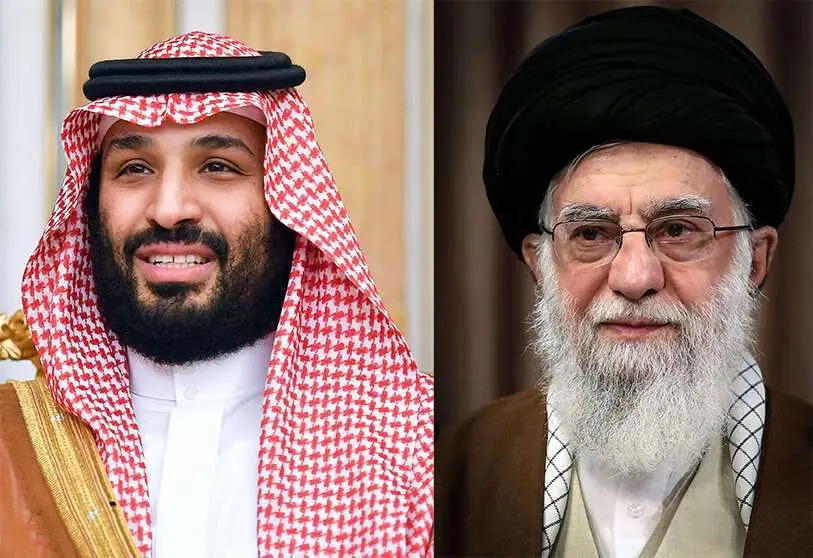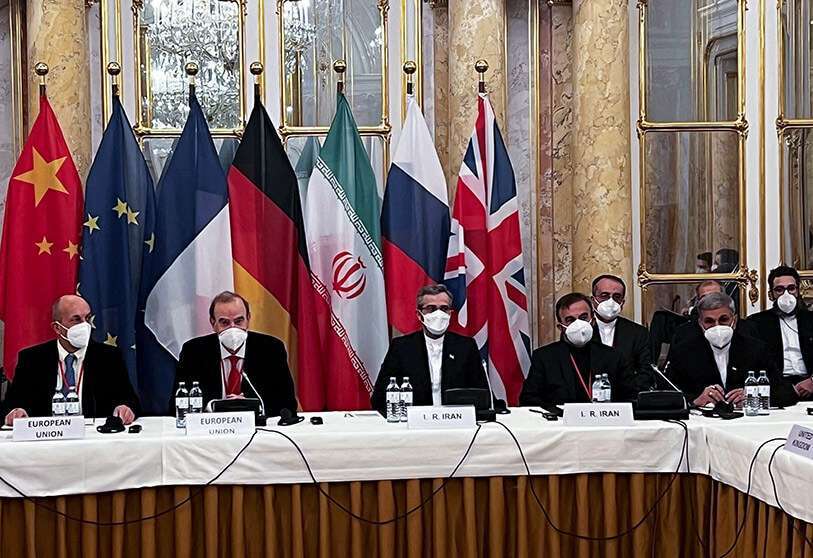Saudi Arabia forced to react after UAE-Iran rapprochement

The death of Shia cleric Nimr Baqr al-Nimr, executed along with 46 others by the Saudi authorities after being accused of terrorist practices and plotting against the government, sparked an outcry in Iran, a bastion of Shi'ism. In protest, an angry mob stormed and set fire to the Saudi embassy in Tehran in early 2016, replicating an episode similar to the 1979 hostage crisis, with the hijacking of much of the US diplomatic legation spurred on by the new Iranian leader, Ayatollah Khomeini.
Riyadh completely severed bilateral relations with Tehran after this event. All avenues of contact were closed. The bitter rivalry in the Middle East between the two sides, latent since the arrival to power of the mullahs in Iran and accentuated three decades later with the revolutionary avalanche of the Arab Spring, which opened the war front in Yemen, among others, was blown out of the water. No understanding was possible, a fact that aggravated the security situation in the region.
But the climax of the regional crisis would not come until three years later. In 2019, Houthi rebels, Yemeni insurgents backed by Tehran, claimed responsibility for a drone strike on the oil facilities of Saudi Aramco, the Saudi state oil company and the backbone of its economy, which knocked out half of the desert kingdom's crude production. Western intelligence, however, pointed to Iran as the main culprit for the action, which was motivated by Saudi intervention in Yemen in favour of the government of Abd Rabbuh Mansur al-Hadi, whom it welcomed on its soil.

The gradual withdrawal from the Middle East undertaken by Donald Trump's domestically self-absorbed US has taken Washington off the map and revealed its powerlessness to defend its regional partners. With no open lines of communication with Iran following its unilateral withdrawal from the nuclear deal and, above all, the imposition of a hard line and new sanctions against the Persian economy, the White House was handcuffed in persuading Tehran to de-escalate tensions, which prompted the Gulf monarchies to react.
The Emirates was the first to change strategy. Abu Dhabi initially followed Riyadh's path, keeping its distance from Tehran and reducing diplomatic ties, but in 2019 it began a new phase of rapprochement that came to fruition on Monday with the announcement of the return of its ambassador to Iran. The UAE has become the top exporter to Iran with trade volumes amounting to $21.4 billion in the first quarter of this year, according to Reuters, tripling the figures recorded just three years ago.
The moves by the UAE, and earlier by Kuwait, the first of the Gulf monarchies to resume relations with Iran, could serve as a precedent for the House of Saud. The Wahhabi kingdom has been in talks with the Islamic Republic since April 2021 at Iraq's behest. Iraq's acting prime minister, Mustafa al-Kazemi, has set himself up as the arbiter of a high-stakes dialogue that has already held five rounds, the last in April. No concrete progress has yet materialised, although more meetings are expected in Baghdad to improve the security situation in the region.

The gaps between the two regimes are wide. To begin with, they are divided by the religious question, where both compete to be the nerve centre of the world's Muslim community. Saudi Arabia, with the holy cities of Mecca and Medina to its credit, has the upper hand, but the threat of recognising the state of Israel works against it. Moreover, Riyadh is the bastion of Sunnism, while Tehran is the bastion of Shiism, opposing branches of the same creed. The different approaches to the Syrian and Yemeni chessboard, among others, do not help either.
The context, however, may be propitious. With a prolonged ceasefire in Yemen and a nuclear deal closer than ever, the parties can sit down without being hemmed in by so many security threats. However, Gulf states fear that, if successful, the reissue of the nuclear deal and the consequent lifting of sanctions could embolden the Ayatollahs' regime. Conversely, if the negotiations break down, analysts point to an escalation of tensions.
Tehran claims that normalisation of relations with Saudi Arabia is an isolated case of the negotiations to revive the Joint Comprehensive Plan of Action (JCPOA), but the two issues are visibly linked. As analyst Banafsheh Keynoush recalls, the Saudi-Iranian talks began after the Biden administration's efforts to return to the nuclear deal. Indeed, when negotiations in Vienna first failed at the end of 2021, after months of negotiations between the participants, the so-called P5+1 group, the Saudi-Iranian dialogue in Baghdad also suffered.










